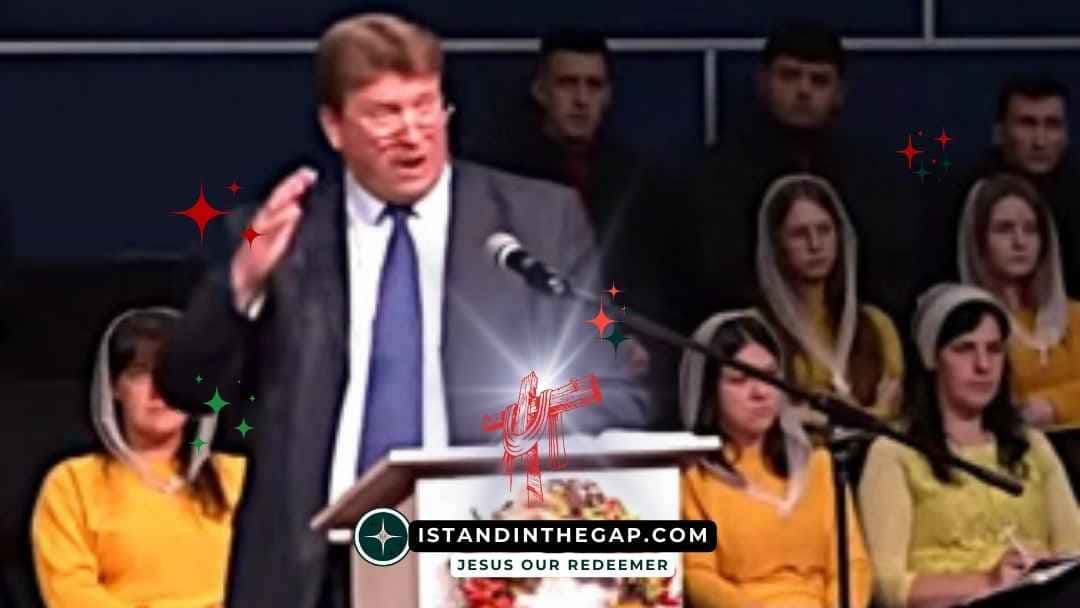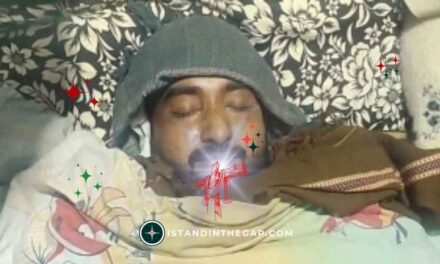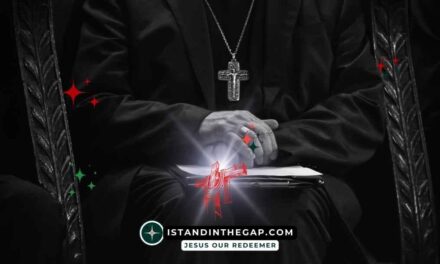A Russian pastor jailed for condemning the Ukraine war in a sermon has become a striking example of how far the Russian government is willing to go to silence dissent.
The Rev. Nikolay Romanyuk, a 63-year-old Pentecostal church leader, was sentenced to four years in prison on September 3, 2025, after preaching against the invasion in 2022.
His case has drawn attention worldwide, highlighting concerns over human rights, freedom of speech, and religious liberty in Russia.
Nikolay Romanyuk, Russian Pastor Jailed: Key Takeaway
- Russian courts sentenced Baptist Pastor Alexei Demidov to four years in prison for publicly opposing the Ukraine war during church services.
Pastor Romanyuk’s Sentence and Charges
Judge Yevgeny Parshin of the Balashikha City Court handed Romanyuk a four-year prison sentence and banned him from managing websites for three years.
He was convicted under Criminal Code Article 280.4, which punishes “public calls to obstruct government activities related to state security.”
According to rights group Forum 18, Romanyuk is the first pastor in Russia convicted under this law for anti-war preaching. His sentence will likely be served in a general regime labor camp, a harsh setting for someone of his age and poor health.
What the Sermon Said
Romanyuk’s troubles began in September 2022, shortly after Russia announced a “partial mobilization” for the war. Preaching at Holy Trinity Pentecostal Church in Balashikha, he declared that Christians could not participate in such violence:
When you are offered a bottle of alcohol or a summons to combat, it is the same sin, the same drug, the same Satan. This is not our war.
He stressed that his church’s doctrine is pacifist, rooted in both Old and New Testament teachings. While he acknowledged the existence of military service, he emphasized that believers could seek alternative civilian service to fulfil their duty without violating their faith.
Romanyuk’s words were livestreamed, and prosecutors later accused him of encouraging others to block military enlistment offices. However, he insisted in court that his sermon was only a reflection of his personal Christian conviction against war.
Brutal Arrest and Detention
In October 2024, heavily armed officers raided Romanyuk’s home, his church, and properties belonging to church members. Witnesses said they were forced to the ground at gunpoint for hours while police confiscated personal belongings, including phones, computers, and bank cards.
During the arrest, officers reportedly struck Romanyuk on the head, causing fluid to leak from his ear. Despite this, no officials have been held accountable for the alleged abuse.
Since his detention, Romanyuk has been held in a Noginsk pre-trial detention center for nearly a year.
His health has deteriorated severely due to hypertension, spinal problems, and lingering effects from a stroke in 2024. He requires daily medication to manage life-threatening conditions.
Family Response: “Convicted for His Opinion”
Romanyuk’s daughter, Svetlana Zhukova, has been vocal about her father’s case. Writing on Telegram, she said:
Dad was convicted for his opinion, his position. He committed no crime. Not a single person suffered from his actions. The state did not suffer at all.
Zhukova described the case as fabricated and politically motivated. She added that while the state may try to rob her father of freedom and ministry, it cannot take away his true freedom in Christ.
Voices of Support and Criticism
Romanyuk’s conviction has been condemned by human rights lawyers, religious leaders, and observers inside and outside Russia.
- Attorney Anatoly Pchelintsev described the verdict as “unjustifiably cruel and unfair.”
- Defense lawyer Vladimir Ryakhovsky argued that the charges relied on weak witness testimony and biased FSB interpretations.
- Rev. Andrey Mizyuk, a Russian Orthodox priest who left Russia in 2022, said: “The state has made it clear more than once that it does not forgive anti-war preaching. Pastor Nikolay could not remain silent, and the Russian state did not forgive him for this.”
Mizyuk added that religious dissent is especially threatening to the government, since appeals to Holy Scripture carry a moral authority capable of piercing state propaganda.
Religious Freedom in Russia: A Growing Concern
The case of the Russian pastor jailed highlights a broader trend of shrinking space for religious freedom in Russia.
Since the invasion of Ukraine, the government has cracked down on clergy who challenge the official narrative. Even minor expressions of pacifism can now be treated as threats to state security.
Russia has previously restricted Jehovah’s Witnesses, pressured Protestant churches, and censored Orthodox priests who spoke against the war. Romanyuk’s case represents an escalation, the criminalization of preaching itself when it conflicts with government policy.
International Reactions
While international governments and Christian organizations have not yet issued formal statements on Romanyuk’s case, rights advocates are warning that his conviction could set a dangerous precedent.
By targeting a pastor for expressing biblical opposition to war, Russia risks further alienating global Christian communities and deepening its reputation as a violator of basic freedoms.
Analysts believe Romanyuk’s case may become a rallying point for international campaigns focused on religious persecution in Russia.
FAQs on the Russian Pastor Jailed Case
Who is the Russian pastor jailed for his sermon?
- Rev. Nikolay Romanyuk, a 63-year-old Pentecostal leader from Balashikha, Moscow Region.
What was he sentenced for?
- He was sentenced to four years in prison for allegedly calling on others to obstruct military offices, though he insists he only expressed his personal Christian beliefs.
What did his sermon say?
- Romanyuk declared that participation in the Ukraine war was sinful, comparing conscription to addictive temptation. He called the war “not our war” and affirmed his church’s pacifist doctrine.
Where is he now?
- He is being held in a detention center in Noginsk and will likely be transferred to a labor camp.
Why is this case significant?
- This is the first known conviction of a pastor under Article 280.4 for anti-war preaching, setting a precedent for punishing clergy who challenge the state narrative.
Conclusion
The story of the Russian pastor jailed for condemning the Ukraine war is not just about one man but about freedom of conscience, religious liberty, and the cost of truth-telling under authoritarianism.
Despite threats, ill health, and imprisonment, Pastor Nikolay Romanyuk stood by his convictions, refusing to retract his words.
His case sends a chilling message to other clergy in Russia: silence is expected, and dissent comes at a heavy price. Yet it also inspires Christians and human rights advocates worldwide to stand in solidarity with those who refuse to compromise their faith for political expediency.

















